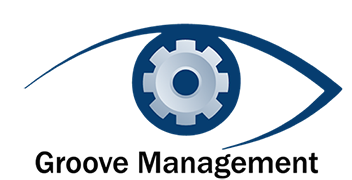The Power of Not Knowing The Answer
The older we get and the more experience we amass, the more we tend to believe we should have the answers. This is a fallacy. There is an infinite amount of information floating around the world and the advent of new technologies like the internet and now AI have only compounded the amount of information at our disposal. Finding answers is easier than ever, but knowing the answer versus being able to track it down still creates a gap.
In working with a coaching client, he recently told me, “I have a thing (fear? Embarrassment?) of not having all the answers. I think especially at this point in my career people expect that I have seen everything. Maybe I’m misreading what they say to me, and maybe I should feel thrilled that they think I have ‘seen it all’? “ I found his concern about not having the answer a bit foolish. I reinforced the fact that no one has all the answers and not having the answers is a good thing. It creates an opportunity for growth and learning. My suggestion for the next time he is asked a question to which he does not have the answer, his response should be,
“I am happy to say, I don’t know the answer.”
By starting with “I am happy to say” the situation is diffused, it shows an excitement and curiosity around finding the answer without the fear and embarrassment. No one likes a know it all. Not having all the answers is normal.
Recently, It was announced that Merriam-Webster’s Word of the Year for 2023 is authentic—the term for something we’re thinking about, writing about, aspiring to, and judging more than ever. In a world of deepfakes, AI generated content and social media personas that paint a false sense of reality, doubling down on authenticity only makes sense. One of the most authentic things I know to do is to admit to not knowing. This reinforces a growth mindset and shows ones aptitude for learning. Those who don’t admit to not knowing have a proving versus improving mindset and they shut themselves off to learning and growth. It is also quite off putting to interact with people who only pontificate and pretend to have all of the answers. I believe it takes more confidence to admit to not knowing the answer than it does to BS someone into thinking you have the answer when in fact you don’t.
There are other benefits to not having the answer. Creativity comes from figuring things out and creating new answers. When this can be done in collaboration with the person asking the question you form a learning bond where you have learned something new together. This growth pattern creates mutual affinity and stronger bonds.
It might be subtle, but next time you are in a situation where you are asked to answer a question where you don’t know the answer, use this simple phrase as your response:
“I am happy to say, I don’t know the answer.” You don’t have to end there. You can confirm that you will find the answer and gladly follow up. Finding the answer will create knowledge and learning. Most importantly you will be modeling follow through which to me is as important of a trait as the intelligence it takes to have the answers.

